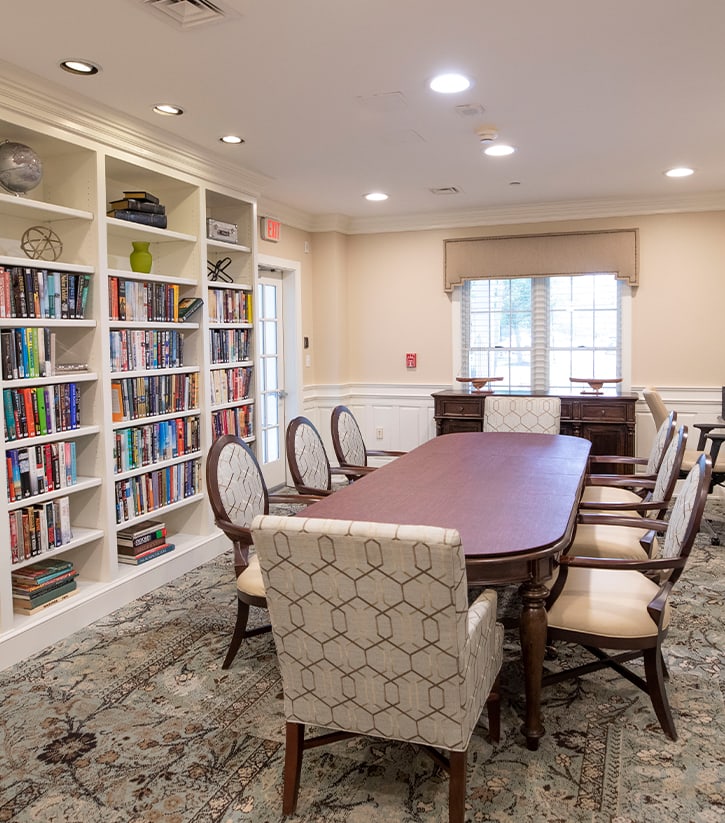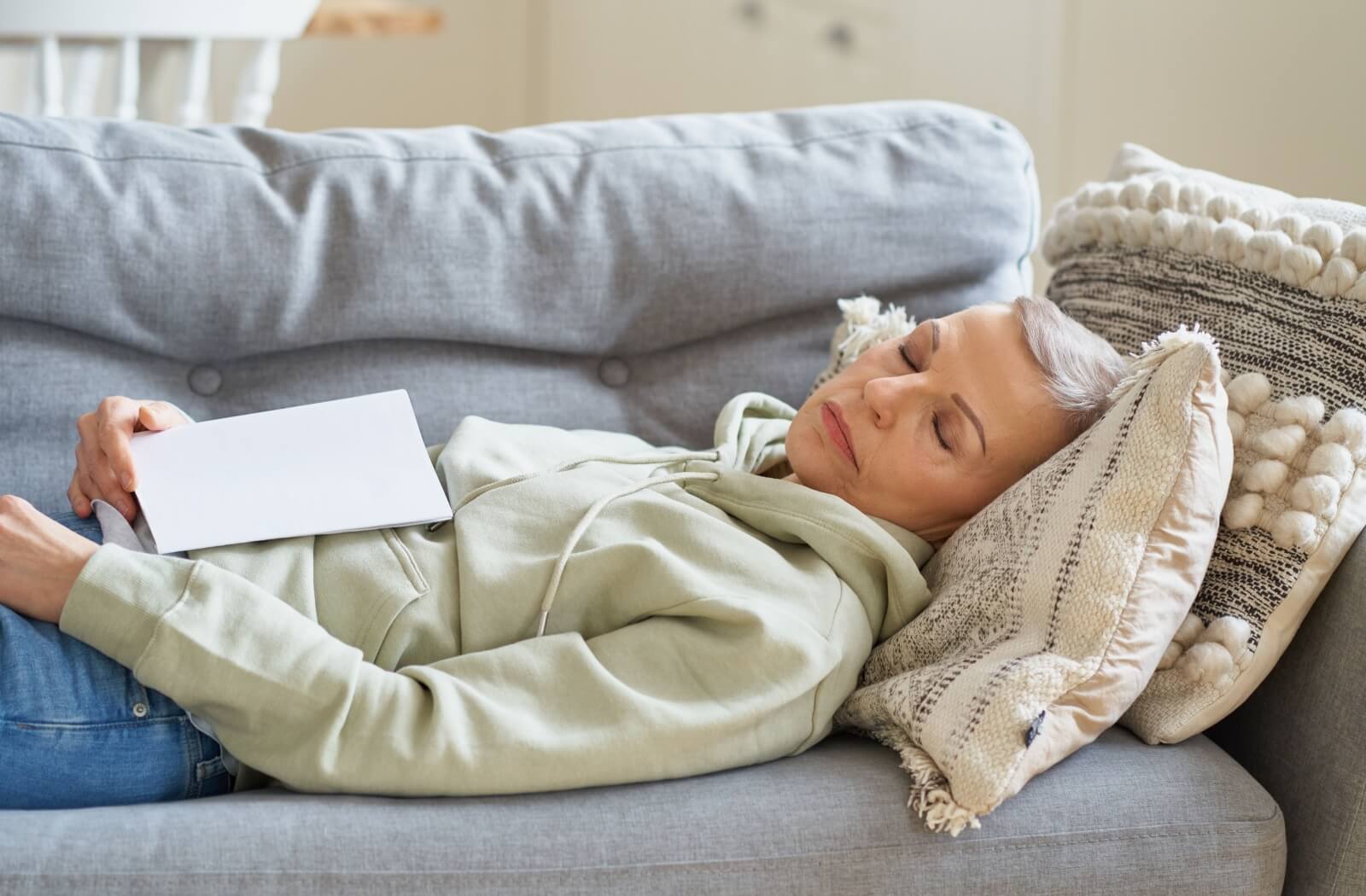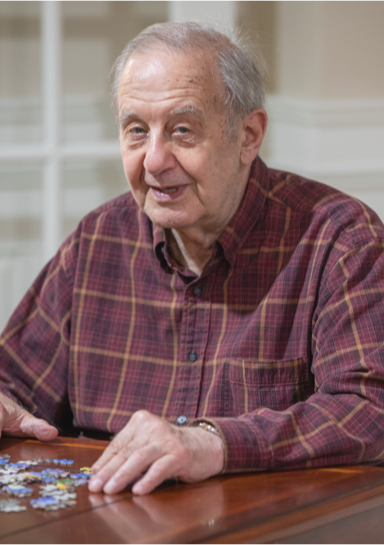If you’ve been wondering why your loved one seems to sleep so much or has irregular sleep patterns, you’re not alone. Sleep disturbances are common among those living with dementia. Many caregivers notice changes in their loved one’s sleeping habits as dementia progresses, and understanding these shifts is key to providing the right support.
At Bay Lake, we want to help you understand the connection between dementia and sleep, what influences these changes, and tips to improve sleep quality for individuals with dementia.
Dementia and Sleep Patterns
Dementia doesn’t just change the way someone thinks or remembers—it can also have a profound impact on their physical and mental rhythms, including sleep. Many people living with dementia experience irregular sleep patterns, from excessive daytime sleepiness to nighttime wakefulness.
These changes can vary by person and by the type of dementia. For example:
- Alzheimer’s disease: Often causes fragmented sleep, confusion between day and night, and frequent nighttime awakenings.
- Lewy body dementia: Can lead to vivid dreams, REM sleep behavior disorder (where individuals act out their dreams), and more daytime drowsiness.
- Vascular dementia: May disrupt sleep due to strokes or reduced blood flow to the brain, contributing to irregular sleep rhythms.
Why Do People with Dementia Sleep More?
There are several reasons why someone with dementia may sleep excessively:
- Disrupted circadian rhythm (the body’s natural sleep-wake cycle).
- Increased brain fatigue, as the brain works harder to send signals and perform everyday tasks.
- Underlying medical conditions, such as sleep apnea or depression, which are often linked to dementia.
These disruptions may lead your loved one to feel unfocused, groggy, or disoriented during waking hours and struggling to get restorative sleep.
The Importance of Recognizing Sleep Changes
Identifying sleep changes early can play a vital role in dementia care. Poor sleep can also compound existing symptoms of dementia, such as memory lapses, mood swings, and confusion.
By recognizing these issues early, caregivers can take proactive steps to address them and seek professional help when necessary.
What Are the Risks of Untreated Sleep Problems?
If left unaddressed, sleep disorders in individuals with dementia can lead to:
- Higher levels of agitation and restlessness (commonly referred to as “sundowning”).
- Increased risk of falls due to drowsiness.
- Heightened caregiver stress and burnout, especially if nighttime wandering becomes an issue.
Factors Influencing Sleep for Seniors Living with Dementia
Understanding what contributes to sleep disturbances in a loved one living with dementia can help you address them. Here are some common influences:
Behavioral Factors
- Napping during the day: Excessive daytime sleeping can disrupt natural sleep-wake cycles, leading to nighttime restlessness.
- Changes in physical activity: Less mobility during the day often results in reduced tiredness at night, thereby complicating sleep.
- Routine disruptions: For seniors living with dementia, consistency is key. Even small changes to their daily routine can affect when they feel sleepy.
Biological Factors
- Brain changes: Dementia affects areas of the brain responsible for regulating sleep, such as the hypothalamus. This can result in fragmented sleep.
- Underlying conditions: Conditions like sleep apnea or restless leg syndrome are often more common in seniors and can further disrupt their sleep.
- Medications: Certain medications prescribed for dementia or other conditions may have side effects that interfere with sleep.
Strategies to Improve Sleep Quality
While it might feel overwhelming to manage sleep issues, there are actionable steps caregivers can take to improve sleep for individuals with dementia. Here’s how you can help:
Establish a Consistent Routine
- Create a structured schedule for waking, eating, activities, and sleeping.
- Encourage regular sleep and wake times to regulate your loved one’s internal clock.
Promote Daytime Activity

- Ensure they get daily physical activity, which can help improve nighttime sleep. A simple walk, stretches, or seated exercises can make a difference.
- Schedule activities earlier in the day to help keep your loved one awake and engaged.
Create a Sleep-Friendly Environment
- Keep your loved one’s bedroom dark, quiet, and cool.
- Consider white noise machines or calming music to provide soothing sounds.
- Make sure your loved one’s bed and pillows are comfortable and supportive.
Limit Stimulants
- Avoid caffeine or sugary snacks, particularly in the afternoon and evening hours.
- Reduce screen time a few hours before bed, as blue light can delay melatonin production and make it harder to fall asleep.
Address Underlying Issues
- Speak with a healthcare provider if you suspect that your loved one has conditions like sleep apnea or restless leg syndrome.
- Monitor any medication side effects that may contribute to sleep problems.
Manage Sundowning Symptoms
If your loved one becomes more agitated or restless in the evening, try these tips:
- Keep the home well-lit during late afternoon and evening hours to minimize confusion caused by fading light.
- Plan calming activities during this time, such as reading together, watching a familiar TV show, or listening to music.
The Role of Healthcare Professionals
If sleep disturbances persist or worsen, it’s important to involve healthcare professionals. This might include a neurologist, a sleep specialist, or a geriatrician. They can help identify underlying causes and recommend treatments, whether that’s adjusting medications, incorporating therapies, or prescribing specific sleep aids.
Professional care can significantly enhance the quality of life, not just for those with dementia but also for their caregivers.
Supporting Sleep Is Supporting Care
Caring for someone with dementia is no small task, especially when sleep disruptions come into play. Understanding why these changes occur, recognizing their effects, and implementing strategies to improve sleep can make a meaningful difference in both your loved one’s well-being and your own peace of mind.
If you suspect that sleep issues are a sign of advancing dementia or feel uncertain about how to help, don’t hesitate to reach out to healthcare professionals. With the right care and support, you can provide a safe, restful environment for your loved one.If you’re seeking answers or resources to manage dementia-related sleep disturbances, contact Bay Lake. Our team is here to guide you through every step of your caregiving journey.













